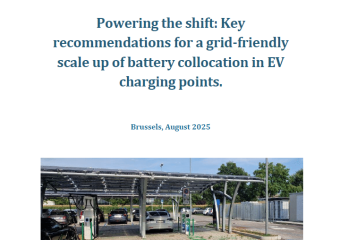The rapid surge in connection of photovoltaic capacity and electric vehicle (EV) charging points in Europe, reflecting the strong commitment of the European Union to decarbonise its economy, presents DSOs with the dual challenge of enhancing network observability while integrating new flexibility services and market actors. Local energy optimisation responds to this challenge by supporting the connection of low-carbon technologies to low-voltage grids while minimising their impact on the quality of power supply.
To understand the dimensions to tackle for the implementation of effective local energy optimisation strategies, E.DSO organised a sharing session building onthe intelligence gathered in our Technology Radar and four innovative E.DSO Success Cases that assessed the role of public EV charging in supporting congestion management, the use of decentralised phase balancing solutions to achieve low-voltage (LV) grid stability and the procurement of flexibility services from aggregators and individual consumers. These E.DSO Technology Guidelines gather the main findings and recommendations from the discussion and a members’ questionnaire on the topic.
Download the paper to find out more!
This paper and guidelines build on the valuable contributions of Mariano Gaudó Navarro and Elena Lara Saez (UFD, Spain), Wouter van den Akker and Tilla Juhasz (Alliander, The Netherlands), Sonja Baumgartner (E.ON, Germany), João Rafael (E-REDES, Portugal), Jan Kula (ČEZ Distribuce, Czech Republic), Ernestas Zimkus (ESO, Lithuania), Gunther Schoovaerts (Fluvius, Belgium), Maximilian Urban (Netz Niederösterreich, Austria), Pavel Glac (PREdistribuce, Czech Republic), Selene Liverani (E.DSO Secretariat) and all the members of the E.DSO Task Force 6 “Technology Radar”.
For further information, please contact Selene Liverani (selene.liverani@edsoforsmartgrids.eu).






